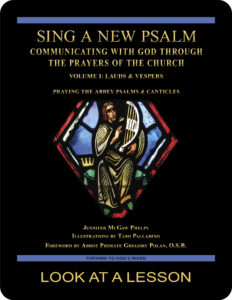Divine Mercy
 Divine Mercy Sunday, sanctioned by Pope St. John Paul II and dedicated to the vision of God’s love as revealed to St. Faustina Kowalska, is celebrated by the Church on the first Sunday following Easter.
Divine Mercy Sunday, sanctioned by Pope St. John Paul II and dedicated to the vision of God’s love as revealed to St. Faustina Kowalska, is celebrated by the Church on the first Sunday following Easter.
The Greek word for mercy, ἔλεος (heleos), can also be translated as “pity” or “compassion.” This is not an incredibly common word in Greek literature. The Latin misericordia carries the same meaning and seems to be roughly consistent with our English usage.
Much more interesting is the Hebrew חָ֫סֶד (checed). This word has a broad range of meaning and a root meaning of “goodness” or “kindness.” The Hebrew word has been rendered by many translations as “loving kindness.” The concept of mercy is secondary only to the core concept of goodness or compassion.
How does your view of mercy change if you equate it with the concept of kindness? How do you think that view differs from the commonly accepted notion of mercy being synonymous with pity? Which view do you think is more consistent with what it is we celebrate in the Church?
related topics: agape; First Letter of John; First Letter to the Corinthians; jubilee pilgrimage; mercy; passion
you also may like Volume I of our Psalms study
 Sing a New Psalm: Communicating with God Through the Prayers of the Church—Volume I: Lauds & Vespers provides an in-depth look at Psalms prayed in morning and evening liturgies. (Volume II, set for publication in 2024, looks at Vigils, Day Prayer & Compline.) The study is based on The Abbey Psalms and Canticles, a translation prepared by the Benedictine monks of Conception Abbey and published by the United States Conference of Catholic Bishops (USCCB). Click on the book’s cover to view a sample lesson.
Sing a New Psalm: Communicating with God Through the Prayers of the Church—Volume I: Lauds & Vespers provides an in-depth look at Psalms prayed in morning and evening liturgies. (Volume II, set for publication in 2024, looks at Vigils, Day Prayer & Compline.) The study is based on The Abbey Psalms and Canticles, a translation prepared by the Benedictine monks of Conception Abbey and published by the United States Conference of Catholic Bishops (USCCB). Click on the book’s cover to view a sample lesson.
 Click on the picture of the statue of Moses with horns (above) to learn more about Lost in Translation. A new entry is archived each Monday. Contact us to receive Lost in Translation by email every week. You may use any of the contact links on our website to ask Matthew a question.
Click on the picture of the statue of Moses with horns (above) to learn more about Lost in Translation. A new entry is archived each Monday. Contact us to receive Lost in Translation by email every week. You may use any of the contact links on our website to ask Matthew a question.
